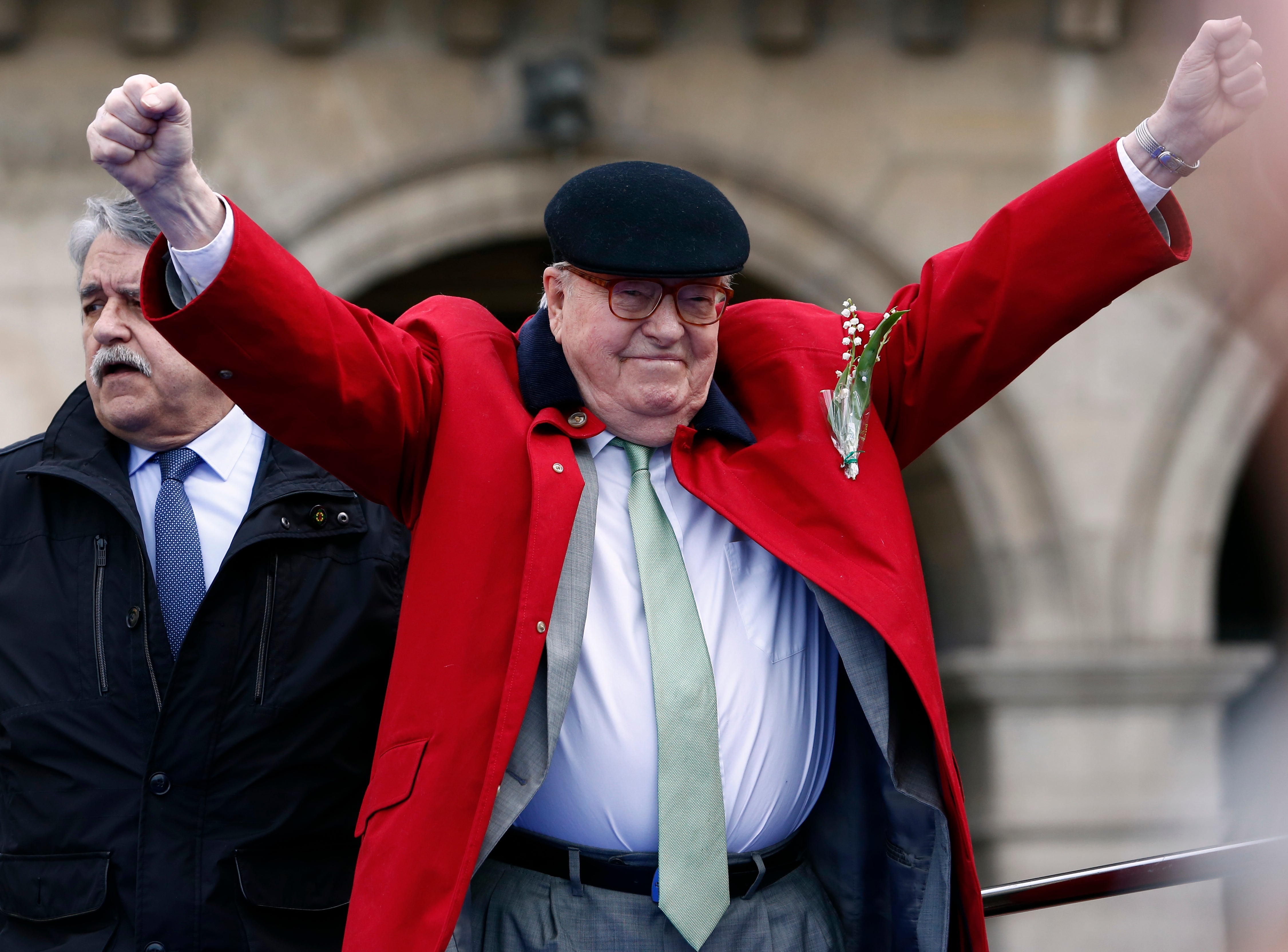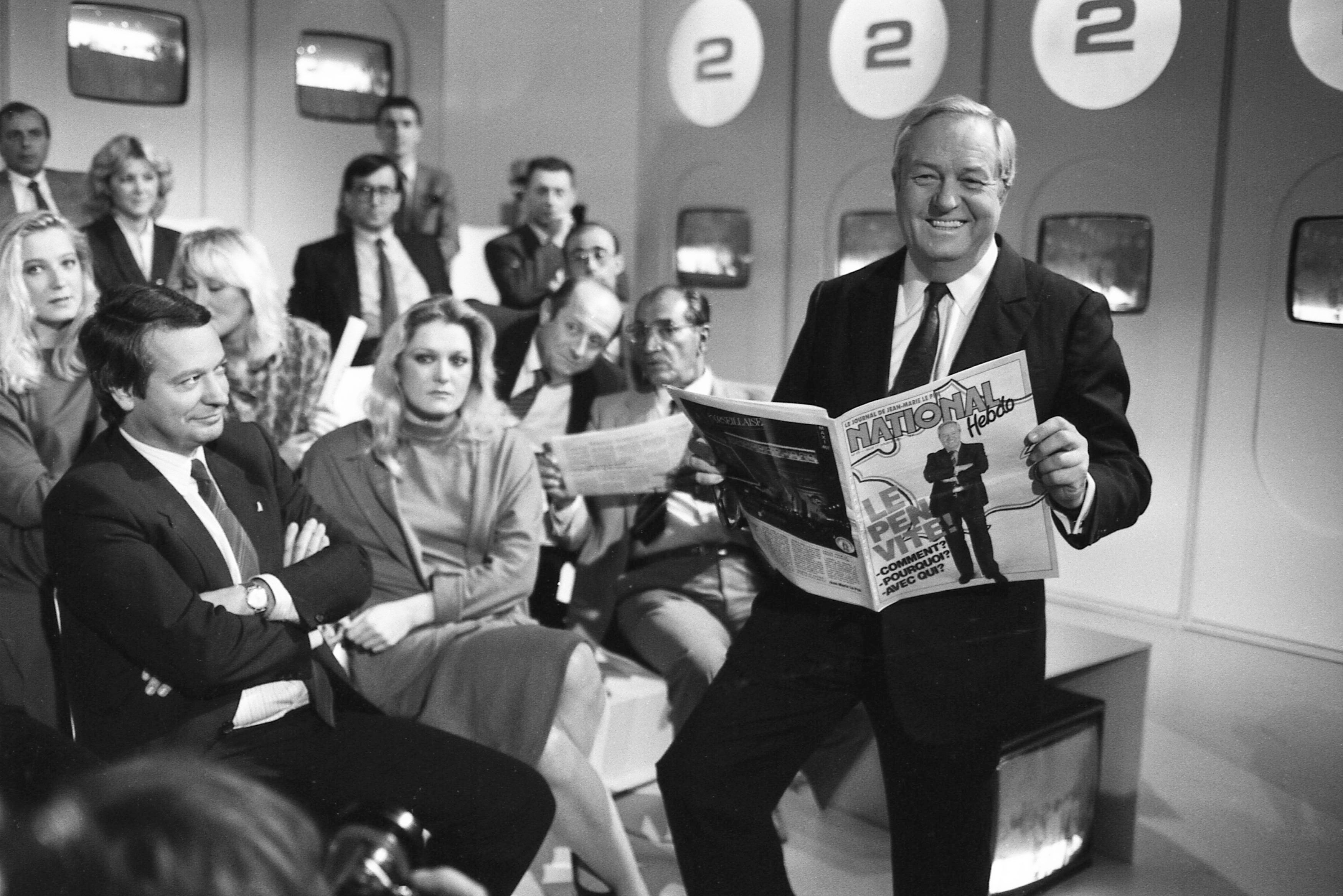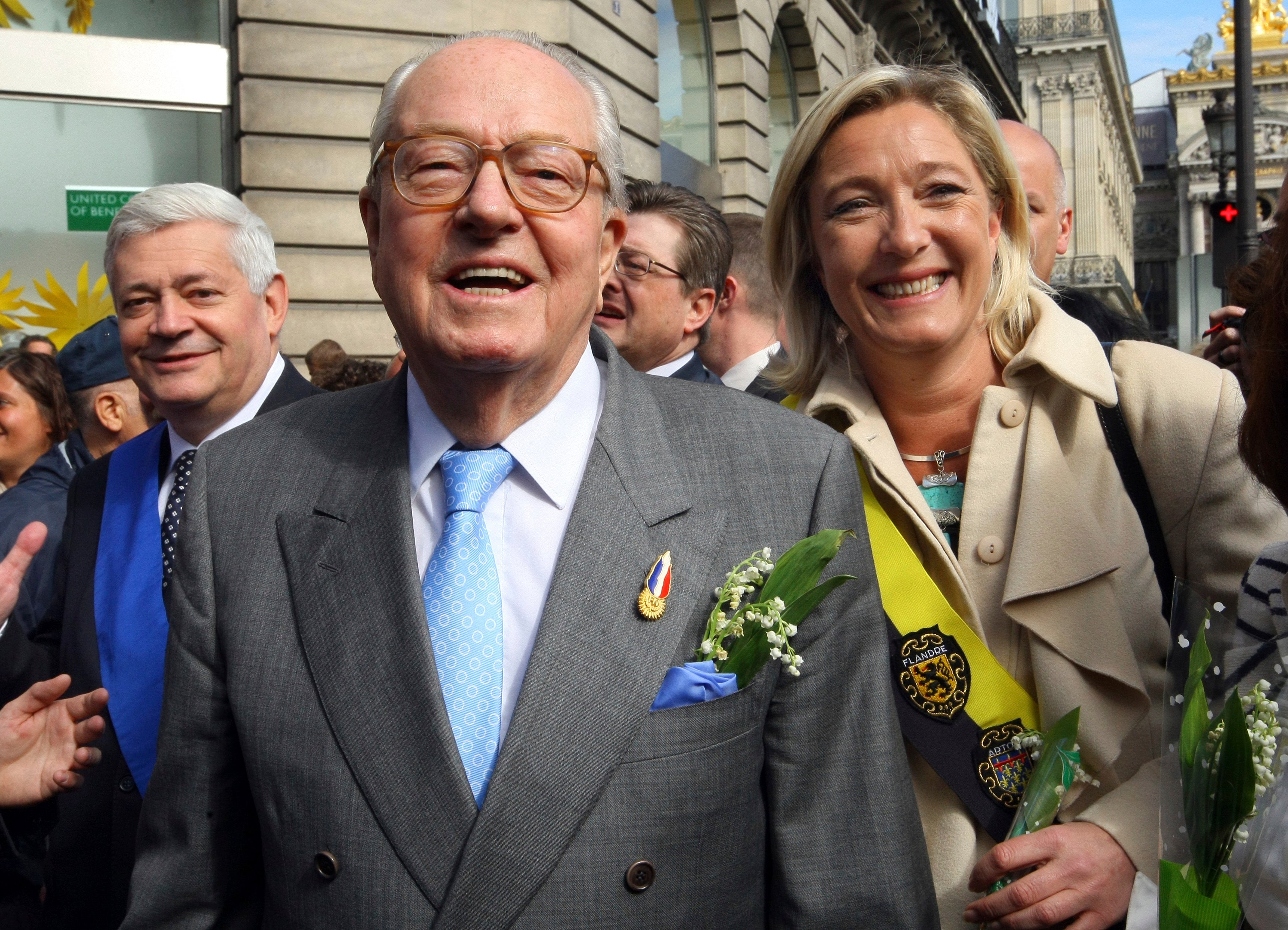Jean-Marie Le Pen, the founder of France’s main far-right National Front party and an unrepentant extremist on race, immigration and multiculturalism, has died aged 96.
Le Pen had been in a care facility for several weeks and died at midday on Tuesday “surrounded by his loved ones”, the family said in a statement.
Le Pen repeatedly courted controversy and legal action with his views on the Holocaust, which he described as a “mere detail” in the history of the Second World War, and his lauding of France’s wartime government at Vichy that collaborated with the country’s Nazi occupiers.
His supporters saw him as a charismatic figure who would speak up for the everyman, but he was widely condemned as a bigot who was convicted several times by the courts for his remarks. Le Pen amassed 11 convictions.
The conviction over the Holocaust denial remark came in 1990, three years after he made it on the radio. In 2015, he repeated the quote, saying he “did not at all” regret it, leading to a new conviction in 2016. He also was convicted for a 1988 remark linking in a play on words a cabinet minister with the Nazi crematory ovens, and for a 1989 comment blaming the “Jewish international” for helping seed “this anti-national spirit.” Le Pen lost his European parliament seat in 2002 for a year for assaulting a socialist politician during a 1997 election campaign.
Le Pen shocked France when he unexpectedly reached the presidential election run-off vote against Jacques Chirac in 2002. That led voters to vote heavily for his opponent Mr Chirac to block the far-right from power, with Mr Chirac securing 82 per cent of the vote.

An extremist when it came to the issues of immigration, race and gender, Le Pen sought to portray himself as “ni droite, ni gauche, francais” – “not right, not left, but French” – but when the nation’s voters were given the choice to put him in power, they resoundingly voted to keep him from the office of the president.
In 1974 Le Pen captured less than 1 per cent of the vote, in 1988 and 1995 he won some 15 per cent. In election after election, he proved to be the spoiler, forcing rivals to scramble to counter him, and sometimes stoop to harvest far-right votes. In 2002, he won around 17 per cent in the first round, enough to send him through to the run-off with Mr Chirac.
Le Pen would run for the presidency again in 2007, the fifth time he did so, but by then his political pull had waned. Then the oldest candidate to ever contest the presidency, he came fourth.
He was succeeded as party chief by his daughter, Marine Le Pen, in 2011. He was honorary president of the party until 2015, when the repetition of the Holocaust denial triggered the ire of Marine and he was excluded.

His daughter then sought to try and soften the party’s image, renaming it the National Rally (RN). She said the process was aimed at ridding the party of its “demonised” image as she tried to expand its electoral appeal, accusing her father of reiterating Holocaust denial to try to “rescue himself from obscurity”.
Marine has since run for the presidency three times and reached the second-round run-off twice, turning the party into one of the country's main political forces.
Jordan Bardella, president of RN, confirmed Le Pen’s death in a post on X on Tuesday. Mr Bardella’s unusually warm tribute highlighted Le Pen’s polemical past, including his ties to the Algerian war, describing him as a “tribune of the people” who “always served France” and expressed condolences to his family, including Marine.
The post appeared to blur the distance the rebranded RN party had sought to establish with the elder Le Pen. Marine, thousands of miles away in the French territory of Mayotte, was inspecting the aftermath of Cyclone Chido at the time of her father's death.

Le Pen’s divisive legacy endures, marking decades of French political history and shaping the trajectory of the far right. He was first elected as an MP in 1956 and co-founded the Front National in 1972. He remained an MP until 1988 and became an MEP in 2004 serving until 2019. He was also a regional councillor in the Provence-Alpes-Cote-d’Azur between 2010 and 2015.
He had three daughters with his first wife Pierrette. Marine, 56, was the youngest, with Yann in the middle and Marie-Caroline the oldest. He married his second wife, Jany, in 1991. Following the feud with his daughter Marine, Le Pen was reported to be closest to his granddaughter, Marion Marechal, daughter of Yann.
Le Pen’s death came at a crucial time for his daughter Marine. She now faces a potential prison term and a ban on running for political office if convicted in the embezzling trial currently underway. She denies the charges.
Jean-Marie also faced charges in the same case – centred around allegations of misuse of European parliamentary funds – but he did not attend the trial because of his poor health. The case involves more than 20 FN and RN officials, also including Yann. The officials have been accused of using money destined for EU parliamentary aides to pay staff who instead did political work for the party between 2004 and 2016.
Prosecutors are seeking to recover more than €3m (£2.5m). The RN has already paid back €1m (£834,000) – which it has said is not an admission of guilt. All officials deny the charges.
A fixture for decades in French politics, Le Pen was seen as a gifted orator. The son of a Breton fisherman and a former paratrooper and Foreign Legionnaire who fought in Indochina and Algeria, he viewed himself as a man with a mission – to keep France French under the banner of the National Front. Picking Joan of Arc as the party’s patron saint, Le Pen made Islam, and Muslim immigrants, his primary target, blaming them for the economic and social woes of France.
“If I advance, follow me; if I die, avenge me; if I shirk, kill me,” Le Pen said at a 1990 party congress, reflecting the extreme style that for decades fed the fervour of his followers.
French judicial authorities placed Le Pen under legal guardianship in February at the request of his family as his health declined.







